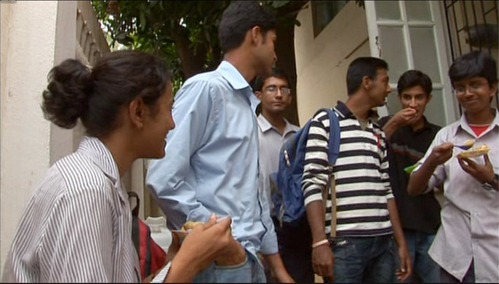
我们的目标是教育. 我们有 64 万学生在里面. 印度有大约 320 百万 (年龄 5 以 14). 鲍勃·康普顿的电影, 两百万分钟, 观察到,很多学生在印度和中国花更多的时间获得学术知识. 是什么在起作用,在印度文化将是从我们的美国文化有什么不同的作品. 有些人可能会说,我们花时间发展成熟的孩子 . Does it matter to many Americans that while we study the Super Bowl and 欢乐, 印度和中国学生花更多的时间来建立自己的知识基础? 是的, 贫困和基础设施薄弱的难题印度面孔, 但往往当你从你身后是更饿实现. These are our global friends 和 our competitors.
它是印度时间 — 印度将参加下届PISA测试 (项目国际学生评估) — 首次. 已经出现了一些新的教育措施,都使得这一切成为可能. 其中主要的项目是由斯里达尔拉贾戈帕兰向我解释 (教育计划负责人), 一个任务一个人彻底改变印度人和其他人思考的学习.
什么样的教育系统将允许印度拥有全球竞争所需的人际交往能力?
我们的目标是有一个教育系统,使人们能够充分发挥其学术潜力. 这将使印度参与全球竞争,并有国内社会,人们正在从事有意义和有能力解决所面临的社会问题. 该系统将需要把重点放在学术成就和研究, 还开发富有同情心和爱心人士.
你有什么重大挑战?
其中一个印度的教育系统面临的基本问题是我们高度关注的死记硬背. 死记硬背的问题是,在世界上许多国家讨论, 包括美国. 然而, 我觉得死记硬背是印度一个严重的问题. 死记硬背的学习好像是说你并不需要了解; 你并不需要能够思考和应用知识; 只要你能背诵什么是一个教训在一本教科书, 没关系. 这个问题也反映在我们学校毕业考试. 它反映了一个事实,即认证是所有重要焦点, 与学习. 那里的孩子都在努力发展基本技能的问题是,即使在农村地区更为严重. 因此,我们的系统需要把重点放在与理解学习, 发展批判性思维能力, 和发展终身的学习热情.
所以,如果你改变了你测试, 这可能会影响孩子们教的方式?
绝对. 为此,我们使用的测试的主要目的是使该系统, 父母, 教师, 和政府认识到学生是学习. 如果我们改变我们目前正在测试的方式, 我们可以同时改善我们的教学方式和什么样的孩子学习质量. 我们开始做这个方向的前几个步骤.
你有什么在过去所做 5 – 10 多年来,以提高学生的评估?
我们开始与低风险的评估工作. 第一步是定期评估. 的目的是为了诊断,并给予一个基准. 我们的诊断工作一直被认为切削刃相对于世界其他地区. 我们的一个优势是我们非常大的学生在高中基地. 我们有第二个优势是,我们进入非常深入我们的诊断工作, 例如. 什么学生了解有关的角度. 当我们做学生的评估,我们捕捉到的学生’ 视频回复. 视频变得非常有帮助的培训和支持教师.
下一步骤是,如有关技术进来. 在教学中的一个新概念的每个阶段, 有学生许多潜在的误解. 相反,期待老师找出所有这些误解时,她有 35 在她的教室或更多孩子, 我们发现,与精心开发的计算机程序, 我们能做到这一点的老师. 让我给你举个例子. 如果孩子还没有掌握一个概念, a teacher might feel she needs to teach that child the concept all over again. With the help of our diagnostic tools, we can assist the teacher to better understand exactly where the child’s lack of comprehension lies, enabling the teacher to better focus the child towards the correct answer. We have created a personalized, intelligent computer based learning program that is based on the misconceptions research — a program called 心灵公园that has been used by leading Indian schools for over 2 年, and has just started to be used in rural India and the US.
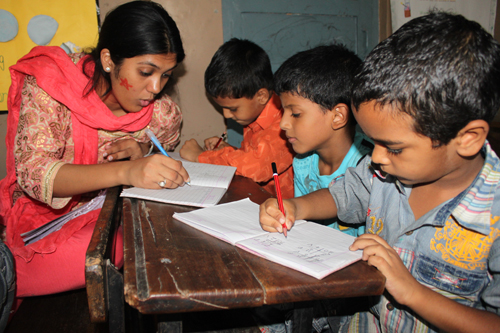
How broad is the distribution of this assessment initiative and what has been its impact?
We currently work with 3,000 私立学校. Similarly we are working in government schools in about 20 出 28 states in India, many countries of South Asia, the Gulf, and in Singapore. Through an initiative supported by Google and in partnership with various state governments, we conducted a detailed class-wise assessment on student learning levels in 2009. 我们刚刚完成了评估 (在孟买的政府合作, 联合国儿童基金会和麦肯锡) 对于每一个孩子在孟买的第3和第6级, 现在正在做同样的事情有两个我们的其他最先进的国家. 我们希望看到下面这个铅附加状态. 政府已经邀请我们基于我们的成功加入到改革的评估委员会. 大型系统往往行动迟缓, 但人们有兴趣做的各种变化,我描述. The fact that government has now supported India’s participation in PISA is an example of government confidence that this approach is working.
What is your view about the impact of academic pressure on student mental health and emotional well being?
Our problems right now in India are different to those of more developed nations. India has a poor education system. 然而, our society values education more than anything. Success in education means getting a good job. 现在, a very small percentage (少于 15%) of our children reach higher education. This is not because of lack of interest. Our problem is poverty and low quality of education. In certain elite schools, there has been some discussion about pressure and test taking. But most parents and teachers believe the pressure is inevitable and necessary because of the competition that exists due to supply and demand for good college places.
What is your vision of the well educated Indian student?
There would be three constants. The first bucket I would call critical thinking, which would include creative thinking and the ability to solve problems. Values and ethics would be in my next bucket: compassion and sensitivity and an understanding of the importance of contributing to your society. Then my final bucket would include strong academic stills along with the desire to excel and to do excellent work.
World Wisdom from India
Rote learning will not lead to educational excellence. A successful system will not focus on end of school exams, but rather on the ability to think and apply knowledge and to produce compassionate and sensitive human beings. Change the way you test to improve the way you teach and the quality of learning. The value that society places on education and the individual’s hunger to learn will have a significant impact on a country’s educational progress.
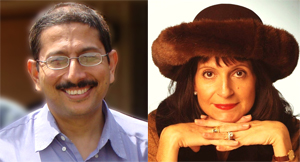

在 全球搜索教育, 加入C.M. 鲁宾和全球知名的思想领袖,包括迈克尔·巴伯爵士 (英国), 何. 莱昂特司特因 (美国), 何. 琳达·达林 - 哈蒙德 (美国), 何. 马达夫查万 (印度), 迈克尔·富兰教授 (加拿大), 霍华德·加德纳教授 (美国), 伊冯娜赫尔曼教授 (荷兰), 克里斯汀Helstad教授 (挪威), 玫瑰Hipkins教授 (新西兰), 科妮莉亚Hoogland教授 (加拿大), 太太. 尚塔尔考夫曼 (比利时), 多米尼克·拉方丹教授 (比利时), 休·劳德教授 (英国), 本·莱文教授 (加拿大), 巴里McGaw教授 (澳大利亚), 斯瑞达拉贾戈帕兰 (印度), 肯·罗宾逊爵士 (英国), 帕西SAHLBERG教授 (芬兰), 安德烈亚斯·施莱歇 (PISA, 经合组织), 何. 大卫·谢弗 (美国), 总理斯蒂芬·SPAHN (美国), 伊夫Theze (公立中学美语), 查尔斯Ungerleider教授 (加拿大), 托尼·瓦格纳教授 (美国), 迪伦Wiliam教授 (英国), 西奥Wubbels教授 (荷兰), 迈克尔·杨教授 (英国), 和张民选教授 (中国) 因为他们探索所有国家今天面临的大画面的教育问题. 全球搜索教育社区页面
ç. M. 鲁宾是两个广为传诵的在线系列,她接受了笔者 2011 厄普顿·辛克莱奖, “全球搜索教育” 和 “我们将如何阅读?” 她也是三本畅销书, 其中 真正的爱丽丝梦游仙境.

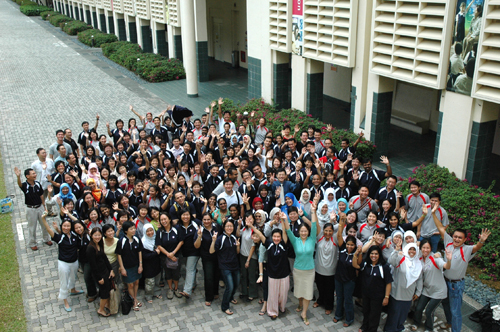
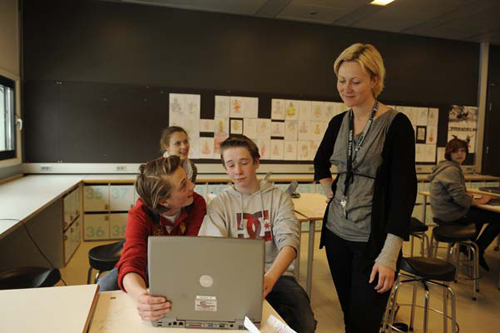
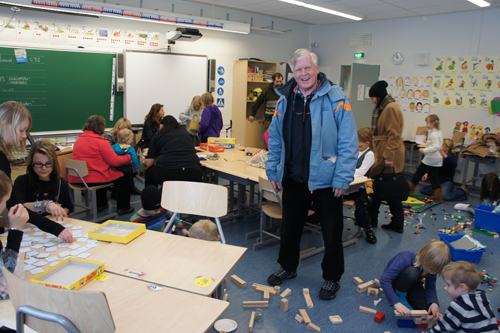

最新评论